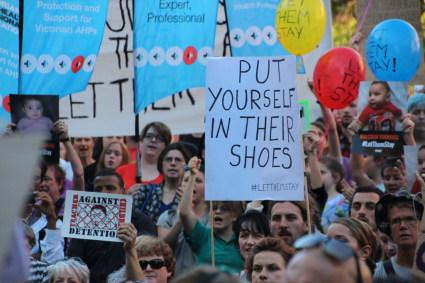Sleeping Beauties...
Posted by Jeremy Windsor on Dec 16, 2021
Working in critical care I sometimes encounter patients with functional neurological disorders - in particular - non-epileptic seizures. Rather than having an underlying physical cause, the triggers for these seizures are much harder to pinpoint. Whilst some patients have underlying psychological issues, there are many who don't. Sometimes this can be frustrating and lead healthcare professionals to dismiss these symptoms as "fake". However what comes through when you speak to sufferers is the helplessness they often feel. In her latest book "Sleeping Beauties And Other Stories Of Mystery Illnesses" Dr Suzanne O'Sullivan, describes a series of functional neurological disorders that highlight the complex interaction between the body, the mind and the wider world. After all, as O'Sullivan writes, "Every medical problem is a combination of the biological, the psychological and the social. It is only the weighting of each that changes." We asked Consultant Psychiatrist Tony Page to tell us what he thought of the book…
Like other doctors, I generally found treating patients with psychosomatic disorders frustrating. In my case, as a psychiatrist, I was usually at the end of the line and patients came to me after extensive investigation by a series of specialists who had been unable to find an organic cause for their problem. Though they were often (but not always) too polite to say so, these patients were generally very sceptical that I could do anything to help and, I sensed, were resentful that their doctors had decided that it was "all in their mind". This was not how they experienced their problem and usually they didn’t want to come back and see me again. If some of the doctors had been able to draw on the approach outlined by Suzanne O'Sullivan in her first book, It's All in Your Head: True Stories of Imaginary Illness, these patients may not have come to me with quite the same attitude and I may have been able to help them a bit more. A few may not have needed to see me at all.
O’Sullivan’s book won the Wellcome Book Prize in 2016. It is a collection of case studies of patients with psychosomatic disorders and, though written for the general reader, it should be required reading for all foundation doctors because of the approach she advocates towards people disabled by real physical symptoms with no underlying physical cause. As, historically, this area of medicine has not been well taught (if taught at all) many more senior doctors, in just about any clinical specialty, would gain something by reading the book.

O’Sullivan writes, "As a neurologist, I am familiar with the power of the mind over the body - more than most doctors perhaps. I regularly see patients lose consciousness through a psychological mechanism rather than a disease process ... At least a quarter of those referred to me with seizures, many of whom believe they have epilepsy, prove to be suffering from dissociative, or psychosomatic, seizures"
O’Sullivan’s third book, The Sleeping Beauties And Other Stories of Mystery Illness, has recently been published and Jeremy asked if I’d be interested in reviewing it. I agreed, of course, because who wouldn't be intrigued by, for example, the 17 US embassy staff in Cuba who had to be evacuated after suffering from what came to be called ‘Havana Syndrome’? Especially so when, as in a spy thriller, the headaches, ear problems, dizziness, visual disturbance, memory problems and fatigue were ascribed to a ‘sonic attack’, perhaps involving ultrasound and presumably directed by malign Cuban authorities. Or, more disturbingly, by the sleeping beauties referred to in the title, refugee children in Sweden who, with their families, have been denied asylum. Now numbering in the hundreds, these children gradually become more and more withdrawn, stop eating and drinking, become immobile, bed-bound and unresponsive to pain. They are given an official diagnosis that translates into English as ‘Resignation Syndrome’. Or what about grisi siknis, a contagious condition that can afflict the Miskito, inhabitants of the Mosquito Coast in Nicaragua. It predominantly affects girls but sometimes boys and older people too. Sufferers experience hyperventilation, disinhibited behaviour and convulsions. They often require restraining and can pass the condition on, typically to their schoolmates.

Havana Syndrome was first identified in US and Canadian embassy staff working in The Cuban capital in late 2016. It has subsequently been described in other diplomats serving in Austria, China and Russia. A fascinating description of Havana Syndrome can be found here
You will have guessed that extensive investigation found no discernible physical causes for these syndromes and others detailed in the book. We are in the realm psychosomatic problems, functional neurological disorder and mass psychogenic illness. But as O’Sullivan points out, there is more to it than this. If biological explanations are unhelpful, psychological explanations are inadequate and it is necessary to acknowledge the specific sociocultural factors involved. Havana Syndrome afflicted a small community of North Americans recently moved to a foreign country after a 50-year hiatus in diplomatic relations and into an atmosphere of persisting mutual suspicion. The children with Resignation Syndrome embody a particular response to an existential threat occurring in uniquely difficult circumstances. The Miskito believe grisi siknis is a disease, but with a spiritual cause. Though biomedical intervention is ineffective the condition responds to treatment by the local healer. Significantly, it does not occur in expatriate Miskito living in the USA, where the girls have more freedom.

O'Sullivan highlights the plight of a large number of child refugees living in Sweden who have developed Resignation Syndrome - "Children initially became very anxious and depressed. Their behaviour changed: they stopped playing with other children and, over time, stopped playing altogether. They slowly withdraw into themselves, and soon they couldn't go into school ... They ceased having any active participation in the world..." More on Resignation Syndrome can be found here
The Sleeping Beauties differs from It's All in Your Head in that most of the ‘cases’ discussed, for obvious reasons, are not drawn from O’Sullivan’s clinical practice as a neurologist who specialises in complex epilepsy. But it is as well-written and fascinating as her first book. It is aimed at, and accessible to, the general reader. Health professionals will not feel short-changed by this, though we might have wished for an index and a list of references. Since her first book she has done a master’s degree in creative writing and has indicated that she might at some point turn her hand to fiction. Those of us interested in the rag-bag of disorders variously named functional, psychosomatic, dissociative and so on, and outliers like me, with an interest in medical anthropology and cultural psychiatry will hope that she does not leave the field altogether! There are concepts she touches on as aids to understanding the conditions she discusses: phenomena like ‘predictive coding’, ‘looping effects’, ‘idioms of distress’ and ‘embodiment’ but full exploration of these would have been out of place in The Sleeping Beauties. There must be scope, though, for a multi-disciplinary collaborative work that explores these concepts, and others, in much more detail for a professional (and similarly multidisciplinary) readership. Here’s hoping that she, and her colleagues, might oblige. In the meantime, read The Sleeping Beauties. And those of you who worry that you might fall into the category elegantly termed ‘steam-powered organicists’ by a former colleague of mine, should read It's All in Your Head too!
Thanks Tony!
Listen to Suzanne O'Sullivan talking about "Sleeping Beauties..." on the BMJ Podcast.
We are hoping to run a one day face-to-face event in the Peak District on the 13th June 2022. Through talks, workshops and a walk in the hills we'll explore the power of hill walking in treating a range of mental health issues.
Tony has written a series of brilliant posts for this blog - why not take a look at what he's got to say about managing risk in the mountains, achilles injuries and his experience of lockdown!
Comments
Leave a comment.
Leave a comment.



 )
)